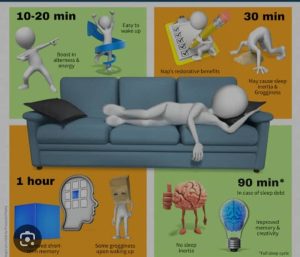By Mutalib Jibril

As a pharmacy student, my days are a whirlwind of early morning lectures, demanding practical sessions, and struggling to complete and submit daily practical reports as early as the following day.
Each day is a marathon, beginning with the sunrise and ending well past the twilight hours. It isn’t just a journey through textbooks and laboratory experiments; it’s a daily battle against exhaustion, the never-ending quest to absorb a mountain of knowledge.
By mid-afternoon, I am often left feeling like a well-worn sponge that had soaked up all it could. The relentless nature of our studies left little room for respite. The idea of a nap in the midst of this academic frenzy felt like an indulgence I couldn’t afford. There are daily practicals to report, millions of tests to prepare for, and deadlines that arrived with unwavering determination.
One day, though, as I was bent over my desk, my vision blurring as I attempted to decipher yet another complex nature of reading Pharmacognosy , it dawned on me: perhaps a short nap was precisely what I needed. I cautiously closed my material, found a quiet corner in the library, and succumbed to the allure of a quick snooze. Twenty minutes later, I reemerged with newfound clarity. It was a revelation. My mind was sharp, my focus unbroken, and my determination renewed.
In the world of pharmacy, where the prescription for success includes long hours and unyielding dedication, the concept of napping is often eclipsed by the never-ending pursuit of pharmaceutical knowledge. But within this high-pressure environment, I discovered the remarkable potential of a well-timed nap.
Napping transcends age, as it’s supported by scientific evidence as a means to enhance cognitive function and mental well-being. Students can significantly improve their daily routines by incorporating power naps. Here are some essential benefits you can gain from this practice:
Improved Alertness and Focus
Napping has the power to rejuvenate your alertness and sharpen your focus, making it simpler to approach tasks with renewed vitality and a clear mind.
Stress Reduction
Napping provides a momentary respite from the daily pressures, fostering relaxation and diminishing stress, ultimately contributing to enhanced overall well-being.
Aid Memory
Research has shown that naps can significantly benefit short-term memory. Students who were instructed in new information and took a nap shortly afterward retained their knowledge approximately 10% better. Even more intriguing, when tested after two and five days, the memory retention remained consistently high. In contrast, students who didn’t nap retained the information less effectively over the following days.
Possibly Alleviate Migraines
Research has uncovered encouraging indications that napping could be a viable strategy for addressing tension headaches. Additionally, inadequate sleep or sleep deprivation can act as triggers for migraines and headaches, and naps may offer a practical approach to counteract these effects. Self-reported data also suggests that naps might serve as a potential coping mechanism for individuals dealing with frequent migraines and tension headaches.
Reduced Dependence on Caffeine
While caffeine can offer a temporary boost in alertness, it may negatively affect crucial brain functions like memory. The next time you find yourself reaching for a coffee, ponder the option of a brief “power nap” for a similar refreshing effect without the potential jitters. What’s more, an afternoon nap of short duration is a preferable choice to an espresso since it is less likely to interfere with your ability to sleep later that night. Naps offer a wholesome and innate means to enhance energy levels and combat drowsiness.
